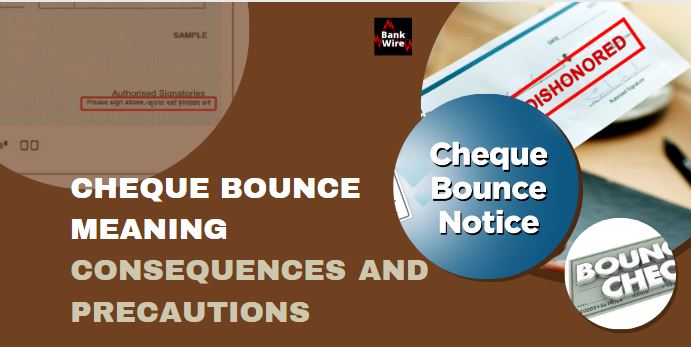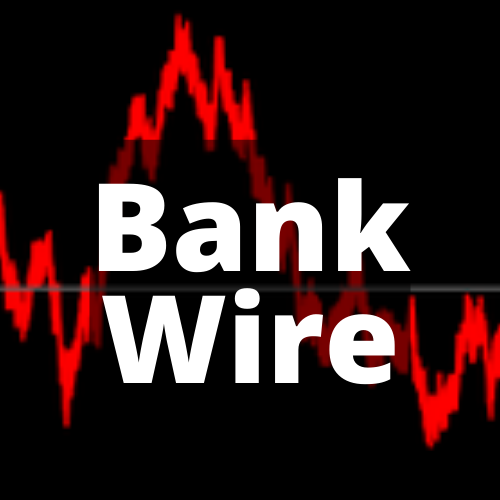
Cheque Bounce Meaning, consequences, Civil Case
Know whether you can file cheque bounce civil case, Save yourself from fraud cheque
Cheque Bounce: People prefer doing Business and large amount transactions by using cheques. Though, digital transactions have increased rapidly and most of the people are using UPI or wallet transactions for small amounts. But the cheque has always been in demand for safer transactions. Increment in cyber fraud is another thing which is why people are reluctant to use digital payment methods. While transaction by cheque is so popular, cheque bounce is also a major problem which knowingly or unknowingly people face in day-to-day banking.
The government of India and RBI has taken many steps to stop fake cheques and spreading awareness through various campaigns. Government has come up with several types of penalties including imprisonment to a person responsible for cheque bounce. However, if a cheque is bounced it does not mean that the issuing person has bad intention. There are several reasons for which banks dishonor cheque.
Bank Deposit Schemes, Compare Fixed Deposit, Recurring Deposit with PPF, Sukanya Samriddhi Yojana
Cyber Fraud: Banking frauds, Recover lost money
In this article we will read about how banks dishonor cheque and cheque bounce reason, cheque bounce consequences and cheque bounce penalty and dishonor cheque punishment for defaulter on cheque bounce.
What is dishonored cheque or bounce cheque?
When a person signs a cheque, he/ she is doing a written commitment to pay the mentioned amount till validity of cheque.
* Payer is the person who issues a cheque, issuer of cheque.
* Payee or drawee is the person who collects the cheque or deposit in his bank.
When a cheque is deposited in bank and go for clearance and bank deny to pay the amount due to error in cheque or any other valid reason, it is called cheque dishonor or cheque bounce.
Complaint against Bank with Bank Ombudsman
Factors affecting Two Wheeler Insurance, Reasons to Buy Bike Insurance Online, Save on Bike Insurance Premium
Cheque bounce reason, deal with dishonored cheque issue –
There are several reasons due to which a cheque is dishonored. You can see main reasons below –
- If the issuer does not maintain sufficient amounts to honor the cheque.
- Signature on the cheque did not match
- Account numbers fail to match
- Disfigured and damaged cheques
- Cheque’s validity is over
- Issuers choose to stop the payment
- The drawer has made corrections, overwritten the name, amount, etc., or the handwriting is illegible and ambiguous
- The cheque is issued on an old, inactive bank account
- Incorrect amount as expressed by the difference in words and numbers
Consequences of cheque bounce or dishonored cheque punishement
There are penalties on both the parties, payer and payee, but it depends on the reason of cheque dishonor. If a cheque is dishonored due to insufficient fund in payer’s bank account, under the Negotiable Instruments Act of 1881, it is an offence. The payee may choose to prosecute the payer or allow the payer to re-issue a cheque within three months. If the payee appeals in court, and the issuer found guilty, the issuer may end up in jail for up to two years for issuing a dishonoured cheque.
Capital Gain Tax & Rates in India, Capital Assets, Rules
Bank Holiday 2022 List in India
Banks penalize the person depositing cheque on cheque bounce. The penalty varies bank to bank, mostly it is Rs. 500 + GST. Some banks have provision of penalty for cheque outward return around Rs.300, and inward return is close to Rs.100.
A dishonored cheque may appear in your credit history and damage the credit score. If it happens, you may face difficulty getting financial help from lenders. Learn What does -1 CIBIL score mean
Banks in India may stop issuing cheque to a person whose cheques are frequently dishonored. However, there are certain conditions applicable to this penalty.
Precautions and suggestions for cheque issuing, cheque receiving
It is always better to be sure and secure while issuing and receiving a cheque. There are few things which a person must follow.
- While issuing a cheque, do not alter or overwrite on cheque.
- While issuing or receiving a cheque, always match the amount written in words and numbers.
- While receiving a cheque, cheque the date mentioned on it. The cheque is valid for 3 months from the issuing date.
- Maintain a little more amount in the account while issuing cheques to avoid consequences.
- Match the correctness of the name written on the cheque.
- Do not sign a cheque in a hurry.
- If the cheque is to be paid in account of the payee, issue a cross mark cheque.
By following and keeping the above in mind, a person can avoid consequences of dishonor of a cheque. It will save your time and money along with reputation. When a cheque is paid on time, it increases your creditworthiness.
Other Articles –
- Credit Card, It’s benefits and negative factors
- Bank Deposit Schemes, Compare FD, RD with PPF and SSY
- Government Business loan Schemes
- Mandatory loan Insurance Schemes
- Tricks to save Tax, 15 Tricks
- How to avoid Health Insurance claim rejection despite paying premium, reasons of cashless health claim rejection
- Muhurat Trading: Know Everything in detail, Timing, Tips
Read Category-wise posts
Banking | Bank Account | Bank Deposit Schemes | Loans | Bank Cards | Credit Cards | Debit Cards | Search IFSC & MCLR Code | Insurance | Bank Jobs and Exams | Stock Market | GST | EMI Calculator




